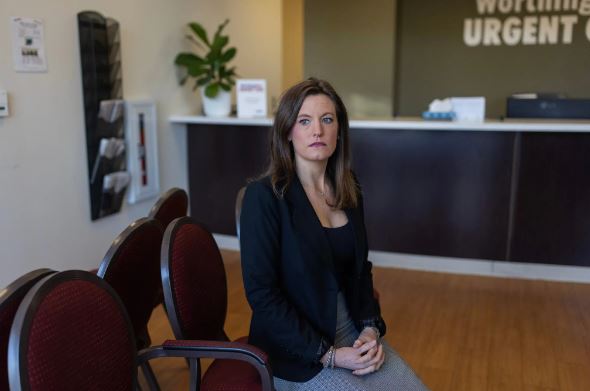The aftermath of a cyberattack that paralyzed the largest U.S. billing and payment system has left medical care providers across the nation grappling with severe financial challenges. From urgent care chains in Ohio to cancer centers in Florida and primary care practices in Pennsylvania, the cash squeeze is exacerbating existing strains on the healthcare industry.
The attack, which targeted Change Healthcare, a key unit of UnitedHealth Group, has disrupted the electronic system that processes billing and payments for medical services. This has left hundreds, if not thousands, of providers unable to obtain insurance approval for services or receive payments, leading to dire consequences for their financial stability.
As medical providers scramble to mitigate the impact of the cyberattack, concerns have been raised about the ability to cover essential expenses such as salaries, rent, and critical treatments for patients. Urgent care centers like Arlington Urgent Care in Ohio are considering drastic measures, including halting rent payments, to navigate the crisis. Even larger institutions, such as a cancer center in Florida and a primary care practice in Pennsylvania, are feeling the strain as they struggle to secure funding for chemotherapy drugs and basic operational expenses.
The shutdown of parts of Change Healthcare’s operations has underscored the interconnected nature of the healthcare system and the vulnerability of patient data. Change Healthcare, which processes billions of transactions annually, acts as a digital clearinghouse linking medical providers to insurers. Its prolonged offline status has led to delays in insurance payments and created significant financial hurdles for providers.
In response to the crisis, the U.S. government announced measures aimed at providing relief to affected providers, particularly those receiving Medicare reimbursements. Health and Human Services (HHS) announced plans to allow providers to apply for accelerated Medicare payments, similar to measures implemented during the pandemic. Additionally, HHS urged health insurers to waive or relax prior authorization rules and recommended advanced funding for private Medicare plans.
However, the effectiveness of these measures remains uncertain, with many providers skeptical about whether they will adequately address the financial strain caused by the cyberattack. The hospital industry has criticized the government’s response as insufficient, emphasizing the urgent need for emergency funding to stabilize affected providers.
Meanwhile, the cyberattack has reignited concerns about the consolidation of medical companies under UnitedHealth Group, which acquired Change Healthcare in a multi-billion dollar deal in 2022. Questions linger about the timeline for restoring the critical network infrastructure and the potential implications for patient care.
The cyberattack has also shed light on the broader vulnerabilities of the healthcare system to cyber threats. With the attack attributed to a group known as AlphV or BlackCat, experts warn of the fragility of critical infrastructure and the need for robust cybersecurity measures to safeguard patient data and ensure continuity of care.
While some initial operational challenges, such as delays in prescription fills at pharmacies, have been addressed through alternative solutions, the financial strain on providers persists. Without a clear timeline for the resumption of Change Healthcare’s operations, medical providers are left grappling with uncertainty and mounting financial pressures.
As healthcare providers across the country continue to navigate the fallout from the cyberattack, the need for comprehensive solutions to address the financial impact and ensure uninterrupted patient care remains paramount. Lawmakers, industry stakeholders, and government agencies must work together to provide the support and resources necessary to mitigate the effects of the crisis and safeguard the integrity of the healthcare system.

